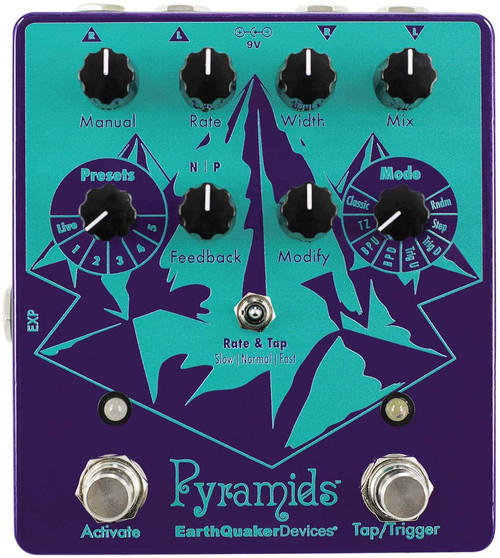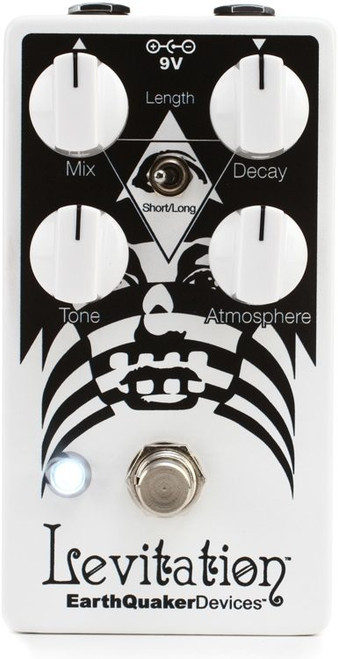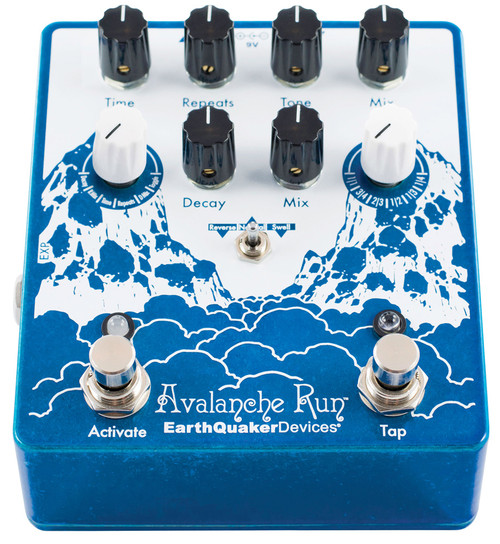Pyramids™ Stereo Flanging Device
Pyramids is a Stereo Flanging Device with five presets, eight flanger modes, tap tempo, tap subdivision, a multifunction Modify control, positive and negative Feedback, and a variable Mix control, which is something you don’t see on a flanger every day.
Built upon the same proprietary DSP architecture as the Avalanche Run™, Pyramids delivers convincing jet-engine roar, authentic through-zero tape-style warble, infinite barber pole sweeps, flexible I/O routing, and the ability to re-trigger the LFO cycle via footswitch opens up a fourth dimension of rhythmic possibilities that’s sure to tickle your third ear.
Modes
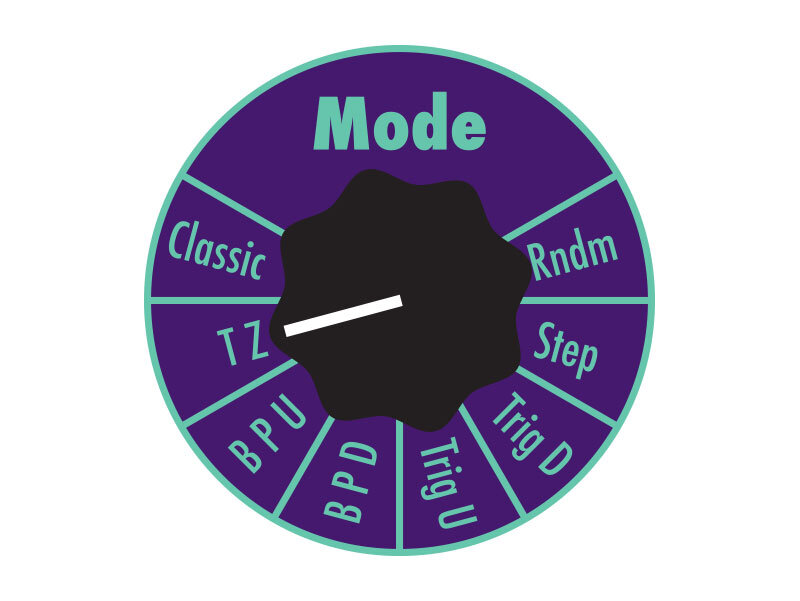
Classic: Tone control for the modulated signal. Clockwise cuts the low end and allows the high frequencies to pass through. Counterclockwise cuts the high end and allows bass frequencies to pass through.
Through-Zero: Delay time for the unmodulated dry signal. This controls where in the LFO cycle the through-zero point occurs, which is where you’ll hear the most drastic cancellation.
Barber Pole Up: Tone control for the modulated signal. Clockwise from center is a high pass filter. Counterclockwise from center is a low pass filter.
Barber Pole Down: Tone control for the modulated signal. Clockwise from center is a high pass filter. Counterclockwise from center is a low pass filter.
Trigger Up: Sensitivity control for the sweep. This controls how quickly the re-triggering reacts to your pick attack.
Trigger Down: Sensitivity control for the sweep. This controls how quickly the re-triggering reacts to your pick attack.
Step: Adjusts the glide between steps. Low Modify settings produce sharp, stair-stepped transitions between steps. Higher Modify settings introduce a smoother glissando effect.
Random: Adjusts the glide between steps. Low Modify settings produce sharp, stair-stepped transitions between steps. Higher Modify settings introduce a smoother glissando effect.
Controls
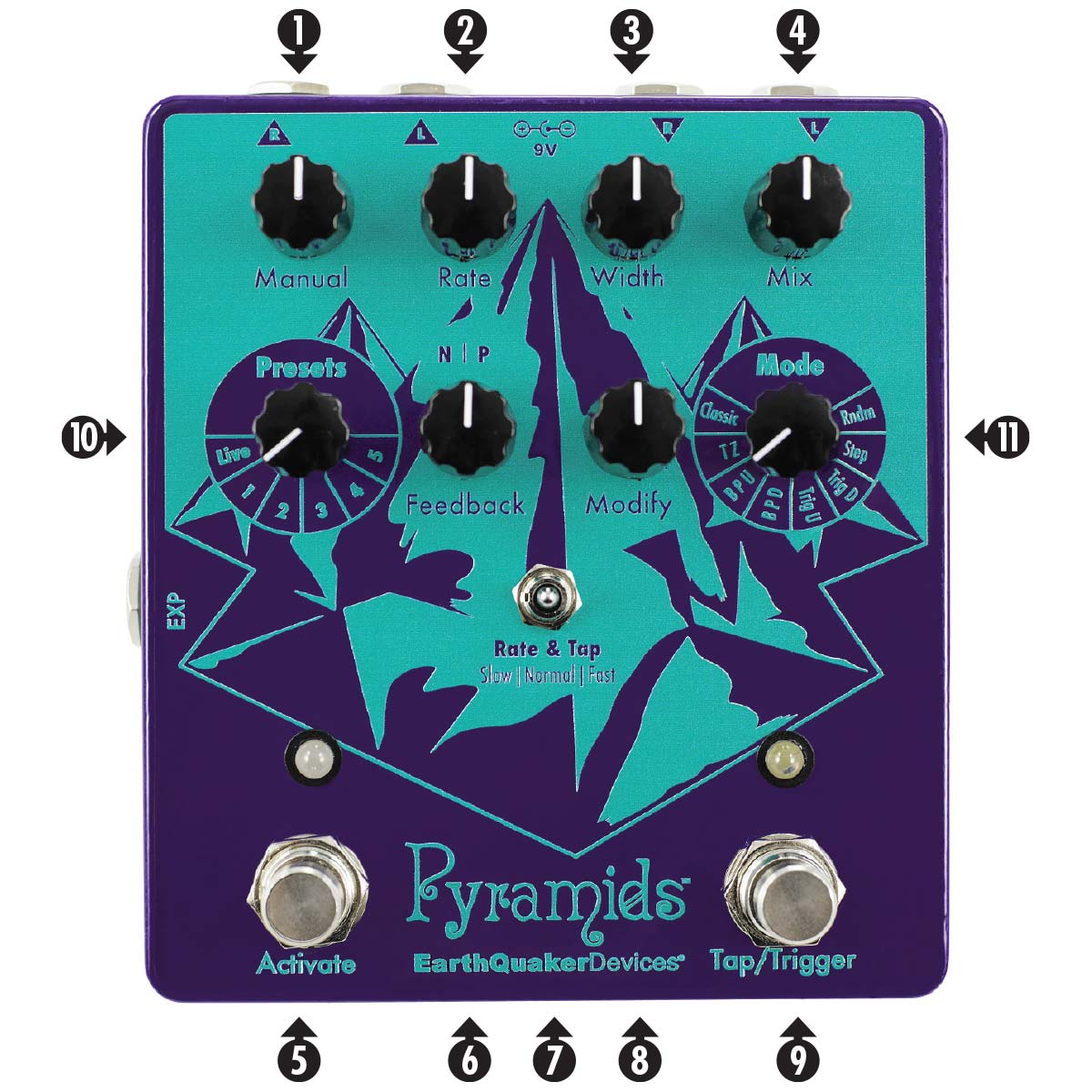
1. Manual: Controls the delay time of the modulated signal. Manual can also be controlled via expression pedal.
2. Rate: Controls the speed of the LFO as well as the rise time in “Trigger Up” mode and fall time in “Trigger Down” mode. The Rate control has three ranges of operation: Slow, Normal and Fast. These modes are selected by the Rate & Tap toggle switch.
3. Width: Controls the frequency range of the LFO sweep. You might also think of it as a depth control for the LFO.
4. Mix: This is the volume control for the modulated signal. The modulated signal gets louder when you turn it clockwise and quieter when you turn it counterclockwise.
5. Activate Footswitch: The activate switch features our Flexi-Switch™ technology! This relay-based true-bypass switch allows for momentary or latching operation.
6. Feedback: Regeneration control for the modulated signal.
7. Rate & Tap Toggle Switch: “Normal” (center position) is 1:1. The tempo you tap in is the tempo Pyramids will spit out. When set to “Slow” (left position), the tempo you tap is divided for a slower sweep. When set to “Fast” (right position), the tempo you tap is multiplied and delivers a faster sweep.
8. Modify: The behavior of this control depends upon which mode you’re using.
9. Tap / Trigger Footswitch: In Classic, Through-Zero, Barber Pole Up, Barber Pole Down, Step, and Random modes, this footswitch is a tap tempo control. In Trigger Up and Trigger Down modes, this footswitch triggers the effect whenever it is pressed.
10. Presets Rotary Switch: Selects between Live mode and one of five presets. Pyramids comes with our favorites programmed in, but you’re allowed to re-write them if you want. We don’t mind.
11. Mode Rotary Switch: Selects between Pyramids’ eight flanger modes.
Presets
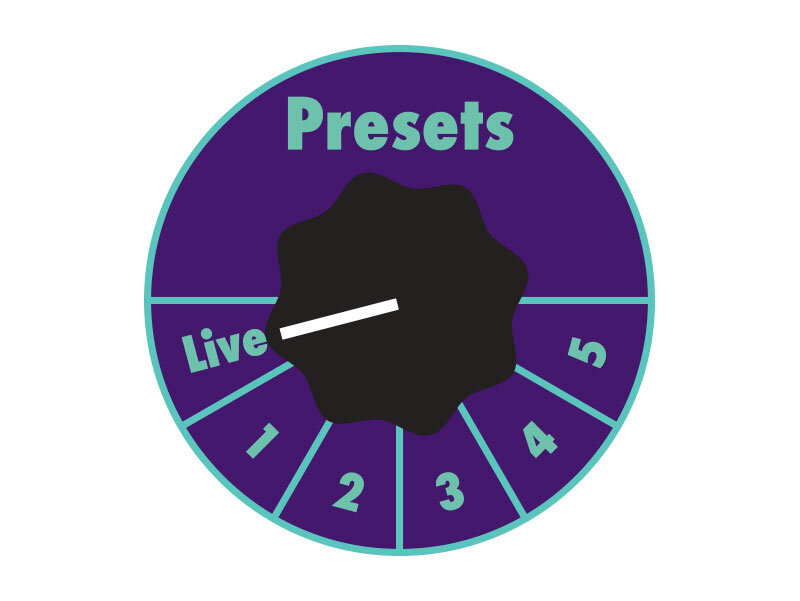
Pyramids ships with five example factory presets:
1- Classic
2- Barber Pole Up
3- Trigger Up
4- Step
5- Random
These are intended to get you started and are by no means the be-all-end-all examples of these modes. Please feel free to modify or overwrite these as you’d like!

